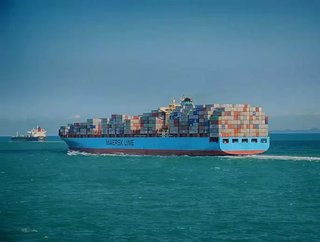Agility signs up to IBM-Maersk blockchain venture

Agility has become the first freight forwarder to collaborate on a Maersk-IBM initiative to provide more efficient and secure methods for conducting global trade by using blockchain technology.
The aim of the collaboration is to use the technology to manage and track container shipments.
Agility has agreed to identify events associated with individual shipments and to share and receive information about them via the distributed ledger blockchain technology developed by IBM and Maersk.
The freight forwarder said its goal is to reduce costs and increase shipping efficiency by integrating information about shipments onto a secure platform accessible to shippers, carriers, freight forwarders and others in the supply chain.
“Blockchain technology is going to make shipping cheaper, safer and more reliable. As early adopters, companies like Agility can help Maersk and IBM understand the needs of shippers and develop standards that will make trade more efficient,” said Essa Al-Saleh, CEO of Agility Global Integrated Logistics.
“We can help customers understand how to use blockchain to improve shipment visibility, eliminate paperwork, reduce errors, and shorten transit and clearance times.”
Agility said Blockchain is a “secure, immutable and tamper-resistant ledger that can be used to track shipments, documentation and payment transactions.
SEE ALSO:
-
IBM and Maersk establish blockchain-based supply chain company
-
Maersk Line joins New York Shipping Exchange - innovator of the first digital freight contract
-
Blockchain, IoT, data and robotics "game changers" for supply chain industry in 2018
“Its digital infrastructure can connect parties in the supply chain, giving them access to information and real-time visibility based on their level of permission.”
Documentation and administration are estimated to be one-fifth of the $1.8trn spent annually to move goods across borders.
In addition to showing the location of containers in transit, backers of blockchain say it can show the status of customs documents, bills of lading and other documentation. It can improve workflow, cut processing costs and enhance visibility by integrating shipping processes and partners.
In theory, customs and border authorities can use the technology to improve the information available for risk analysis, leading to increased safety and security as well as greater efficiency in border inspection clearance.
“For Agility, it’s important to be involved early in blockchain and to work with forward-thinking companies like Maersk and IBM,” Al-Saleh added.
“Together, we have a lot to learn and share in order to bring the benefits of this technology to shippers and consumers as quickly as possible.”






